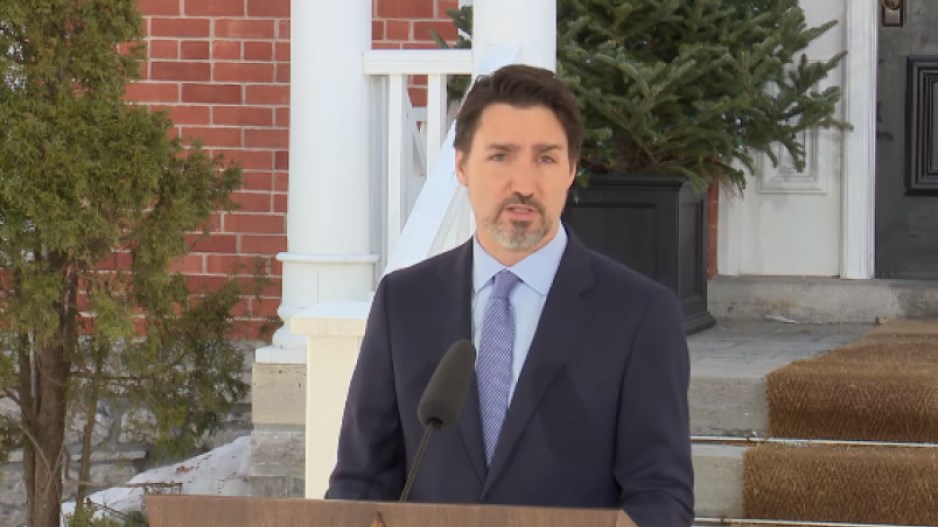When a government is forced to face an unexpected crisis, its original plans usually become the first victim. There were few mentions of U.S. President George W. Bush’s push for “compassionate conservatism” after Americans realized the gravity of the 9/11 attacks. The staunchly anti-deficit Stephen Harper was compelled to send Canada’s federal budget into the red as prime minister, but only after the size of the 2008 global financial crisis became evident to all.
The way in which elected politicians have dealt with the COVID-19 pandemic has provided an opportunity to review which leaders are living in the present, and which ones operate with a playbook that has not been updated. Brazil, Mexico and the United States are examples of national administrations whose response to the crisis can be described as flat-footed, ideologically motivated and excruciatingly unscientific.
When 2019 was about to draw to a close, most political discussions in Canada concentrated on a perceived lack of unity in the country.
Last December, 40% of Albertans and Quebecers told Research Co. that their provinces would be better off as independent countries – a significantly higher proportion from the Canada-wide average of 25%.
In that same survey, we outlined the problems of two premiers. At the time, 60% of Ontarians wished for someone other than Doug Ford to lead the provincial government and 57% of Albertans felt the same way about Jason Kenney. In addition, 50% of Canadians believed their province would be better off with a different prime minister in Ottawa, and only 38% disagreed with this statement about the capabilities of Justin Trudeau.
Six months and one pandemic later, the numbers are different for the prime minister and some premiers, but the zeal for a landlocked, sovereign Alberta has dwindled considerably.
Across the country, 38% of Canadians think their province would be better off with a different prime minister in Ottawa, 12 points lower than last year. There is still a gender gap on this issue, with more men wishing for a different head of government than women (42% to 34%).
In three of the four most populous provinces, the numbers for Trudeau improved markedly since December 2019. While last year 53% of British Columbians preferred someone else in Ottawa, the proportion has fallen to 37%. Animosity toward the prime minister also fell in Ontario (to 35% from 51%) and Alberta (to 54% from 65%). Quebec’s numbers are essentially the same (38% in December 2019, 37% now).
Ottawa’s reaction to the COVID-19 pandemic is changing the perception of residents on the federal government. We could assume that all premiers would be the beneficiaries of a similar bump in public affection, but not every area of the country is feeling the same way. The biggest change is observed in Ontario, where the proportion of residents who want someone other than Ford in charge fell by 22 points to 38%. Quebec Premier François Legault and British Columbia Premier John Horgan also posted better numbers, with their unfavourability rating on this question going to 29% from 44% and to 36% from 42%, respectively.
Alberta was immune to the COVID-19 bounce. In December 2019, 57% of Albertans yearned for a different premier than Kenney. This time around, 56% of the province’s residents feel the same way.
Kenney has been unique among Canadians premiers in his ubiquity during pandemic press conferences, his criticism of federal health authorities and his inability to temporarily shelve campaign platitudes. Premiers of all political stripes – a New Democrat in B.C., a Conservative in Ontario and a populist in Quebec – have seen their numbers improve after establishing a positive emotional connection with residents. Kenney has been unable to match them.
As many Albertans question the path of their provincial government, the concept of independence is losing its lustre. In this latest survey, 28% of Albertans believe that their province would be better off as its own country. This represents a 12-point drop from the numbers registered in December 2019, just weeks removed from an election where the federal Conservatives got more votes but won fewer seats than the Liberal Party of Canada. Separatist feelings also fell slightly in Quebec, dropping to 36% from 40% last year this time around.
Albertans are starting to look at governments in a different light. The past six months have brought recovery for the prime minister and stagnation for the premier. Hatred toward Ottawa has indubitably subsided. We will have to wait longer to see if the ludicrous idea of Alberta’s secession becomes a welcome side effect of the COVID-19 pandemic. •
Mario Canseco is the president of Research Co.
Results are based on an online study conducted on May 26 and May 27 among 1,000 adults in Canada. The data has been statistically weighted according to Canadian census figures for age, gender and region. The margin of error – which measures sample variability – is plus or minus 3.1 percentage points, 19 times out of 20.




